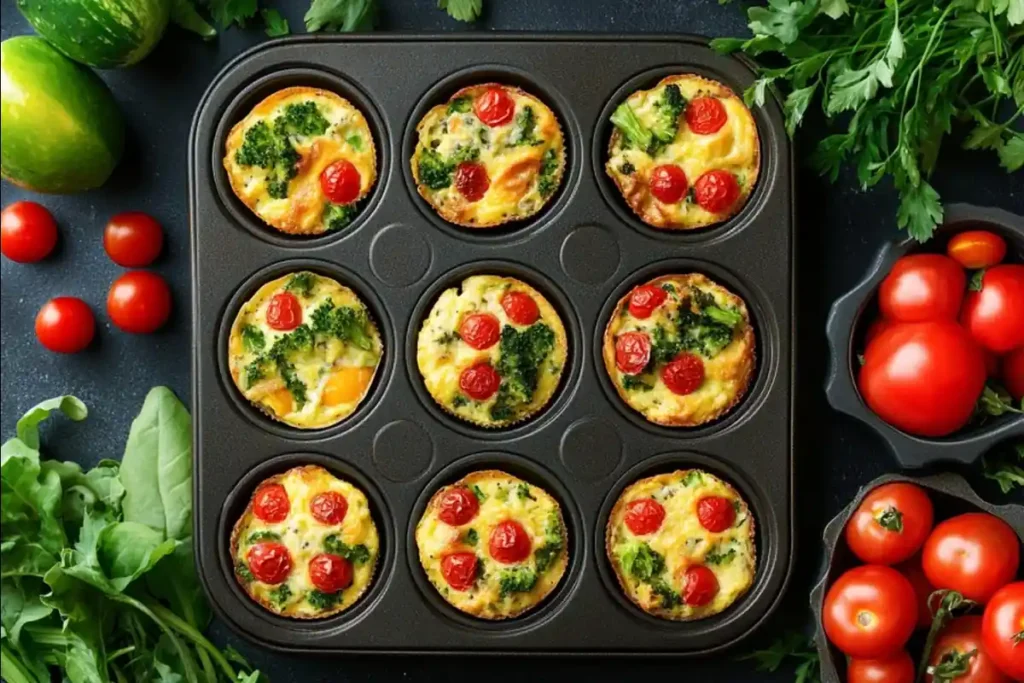Are Eggs Gluten-Free and Dairy-Free? Eggs are one of the most versatile and widely consumed foods in the world. However, when it comes to dietary restrictions, particularly gluten-free and dairy-free diets, there’s often confusion about whether eggs fit the bill. Are they naturally gluten-free? Do they contain dairy? This article aims to clear up any misconceptions while providing helpful tips, recipes, and insights for anyone navigating a gluten-free and dairy-free lifestyle. Let’s crack into it!
1: Introduction to Eggs and Dietary Restrictions
Eggs are a staple ingredient in many diets, but understanding their role in gluten-free and dairy-free lifestyles requires a closer look. Let’s dive into the basics of eggs and explore why these dietary considerations matter.
Understanding the Basics: What Are Eggs?
Eggs are the nutrient-packed reproductive units of birds, most commonly hens. They consist of three main parts: the shell, the egg white, and the yolk. But are eggs gluten-free and dairy-free? Naturally, they are! Eggs are rich in protein, vitamins, and minerals, making them an essential part of many balanced diets.
However, some people with specific allergies or intolerances may worry about hidden ingredients or cross-contamination during preparation. We’ll discuss how to avoid these pitfalls later.
Dietary Needs: The Importance of Gluten-Free and Dairy-Free Foods
A gluten-free diet excludes gluten, a protein found in wheat, barley, and rye, while a dairy-free diet avoids milk and its derivatives like butter, cheese, and cream. These diets are essential for individuals with celiac disease, gluten sensitivity, or lactose intolerance, as well as for those who choose these lifestyles for personal health or ethical reasons.
So, are eggs gluten-free and dairy-free? Eggs, with their naturally dairy-free and gluten-free profile, often seem like a safe haven. However, their suitability can vary depending on how they’re processed and prepared.
Why the Question of Gluten and Dairy Matters for Eggs
So why is there confusion about eggs and these dietary restrictions? For starters, some processed or pre-cooked egg products may include added ingredients like milk solids or starches, which could contain gluten. Similarly, eggs cooked in shared kitchens might come into contact with gluten-containing foods. Understanding these risks is crucial for anyone maintaining a strict gluten-free and dairy-free diet.
2: Are Eggs Naturally Gluten-Free?
Are eggs gluten-free and dairy-free? Eggs, in their simplest form, are a naturally gluten-free food. However, the question isn’t always so straightforward when you factor in how they’re processed or prepared. Let’s explore this topic in more detail.
What is Gluten and Where is it Found?
Gluten is a protein found in grains like wheat, barley, and rye. It acts as a binder, giving elasticity to dough. While gluten is harmless to most people, individuals with celiac disease or gluten sensitivity need to avoid it entirely.
The Natural Composition of Eggs
In their raw, unprocessed form, eggs are free from gluten. They’re composed of protein-rich egg whites and nutrient-dense yolks, which are inherently gluten-free. Their simplicity makes them a dietary staple for those avoiding gluten.
Cross-Contamination Risks: Gluten in Processing and Cooking Eggs
Here’s where things get tricky: eggs may encounter gluten during processing or preparation. For instance:
- Pre-cooked or processed egg products might contain fillers or seasonings that include gluten.
- Cooking eggs on shared surfaces or utensils contaminated with gluten can pose risks for those with strict dietary needs.
To avoid these issues, always check ingredient labels and opt for certified gluten-free products when buying processed eggs.
Verifying Gluten-Free Status: Reading Labels and Certifications
When shopping, look for products marked with a “Certified Gluten-Free” label. This ensures the eggs haven’t been exposed to cross-contamination during production. Some labels might also indicate allergen warnings, which can be helpful for gluten-sensitive individuals.
3: Are Eggs Naturally Dairy-Free?
The assumption that eggs contain dairy is surprisingly common, yet completely incorrect. Eggs are not derived from milk or any dairy product, but there are still some points of caution to consider.
What is Dairy and How it Differs from Eggs?
Dairy products come from the milk of mammals like cows, goats, and sheep. These include cheese, yogurt, cream, and butter. Eggs, on the other hand, are laid by birds and have no connection to dairy.
The Confusion Between Eggs and Dairy: Clarifying Misconceptions
Why do so many people mistakenly lump eggs into the dairy category? The confusion likely stems from grocery stores often grouping eggs with dairy products. While they might sit next to milk in the fridge, they’re biologically unrelated.
Checking for Dairy Additives in Processed Egg Products
Although raw eggs are dairy-free, processed egg products can sometimes include additives like milk solids or cream for texture or flavor. Always read the ingredient list if you’re buying liquid eggs or pre-cooked options.
Ensuring Dairy-Free Certification on Packaged Egg Products
Just as with gluten-free concerns, seek out products with a “Dairy-Free” label for added peace of mind. Certified products are less likely to have hidden ingredients that could cause issues for those avoiding dairy.
For more breakfast ideas that are both gluten-free and dairy-free, check out this guide on gluten and dairy-free breakfast recipes.
4: Recipe Section: Gluten-Free and Dairy-Free Recipes Featuring Eggs
Eggs are a culinary powerhouse, offering endless possibilities for creating delicious dishes that fit into a gluten-free and dairy-free lifestyle. Below are some simple yet satisfying recipes you can enjoy.
Breakfast Delights: Gluten-Free and Dairy-Free Egg Muffins

These portable egg muffins are perfect for busy mornings. Packed with fresh veggies, they’re not only gluten-free and dairy-free but also loaded with nutrients.
Ingredients:
- 6 large eggs
- 1 cup diced bell peppers
- 1 cup chopped spinach
- Salt and pepper to taste
Instructions:
- Preheat your oven to 350°F (175°C). Lightly grease a muffin tin.
- Whisk the eggs in a large bowl and season with salt and pepper.
- Add bell peppers and spinach to the mixture.
- Pour evenly into the muffin tin and bake for 20 minutes or until set.
Healthy Lunch Options: Egg Salad with Dairy-Free Mayonnaise
Egg salad is a lunchtime classic that’s easy to make and customize. Using a dairy-free mayonnaise ensures this recipe aligns with your dietary needs.
Ingredients:
- 4 boiled eggs, chopped
- 2 tbsp dairy-free mayonnaise
- 1 tsp Dijon mustard
- Salt and pepper to taste
Instructions:
- Combine all ingredients in a bowl and mix well.
- Serve on gluten-free bread, lettuce wraps, or crackers.
Dinner Special: Frittata with Vegetables

A frittata is a versatile dish that works for dinner, brunch, or any time of the day. It’s an ideal way to use up leftover vegetables.
Ingredients:
- 6 large eggs
- 1 cup diced zucchini
- 1 cup cherry tomatoes, halved
- 1 tbsp olive oil
- Salt and pepper to taste
Instructions:
- Preheat your oven to 375°F (190°C).
- Heat olive oil in an oven-safe skillet over medium heat. Sauté zucchini and cherry tomatoes until tender.
- Whisk the eggs, season with salt and pepper, and pour over the veggies.
- Cook on the stovetop for 3 minutes, then transfer to the oven. Bake for 10–12 minutes or until set.
For more egg-based recipes, check out our pumpkin pie recipe on WeDoRecipes.
5: Health Benefits of Gluten-Free and Dairy-Free Eggs
Eggs are not only a versatile ingredient but also a nutritional powerhouse. For those on a gluten-free and dairy-free diet, they offer numerous health benefits.
Nutritional Value of Eggs
Eggs are packed with essential nutrients, including:
- High-quality protein: Supports muscle growth and repair.
- Vitamins B12, D, and A: Boost energy, bone health, and immune function.
- Choline: Vital for brain health and cell function.
What makes eggs stand out is their ability to deliver these nutrients in a low-calorie package, making them ideal for various dietary needs.
Benefits for People with Celiac Disease and Dairy Intolerance
For individuals with celiac disease or gluten sensitivity, gluten-free foods like eggs are a safe and nourishing choice. Similarly, since eggs are naturally dairy-free, they are perfect for those with lactose intolerance or milk allergies.
Eggs also provide satiety, helping to keep you full longer, which can support weight management.
Supporting Overall Health with Eggs in a Balanced Diet
Including eggs in your diet can contribute to overall wellness. They are:
- Heart-healthy: Research suggests that moderate egg consumption doesn’t raise cholesterol levels for most people.
- Bone-strengthening: Thanks to their vitamin D content, eggs support calcium absorption.
By incorporating eggs into your gluten-free and dairy-free meals, you’re not just enhancing flavor but also improving your overall health.
6: Gluten-Free and Dairy-Free Lifestyle Tips
Transitioning to a gluten-free and dairy-free lifestyle doesn’t have to be overwhelming. With a little preparation and knowledge, you can enjoy delicious, safe meals every day.
Identifying Safe Foods Beyond Eggs
Learning which foods to trust is key to maintaining your diet. Stick to whole, unprocessed foods whenever possible. Products marked as “Certified Gluten-Free” or “Dairy-Free” are a reliable way to avoid unwanted ingredients. Are Eggs Gluten-Free and Dairy-Free? Yes, they are naturally free from both, making them a versatile and essential staple for many diets.
Tips for Eating Out While Staying Gluten-Free and Dairy-Free
Dining out can be tricky, but not impossible. Here are some helpful tips:
- Call the restaurant ahead to inquire about gluten-free and dairy-free options.
- Ask for your meal to be prepared on a clean surface to avoid cross-contamination.
- Stick to simple dishes like grilled meats, steamed vegetables, and eggs, which are less likely to contain hidden gluten or dairy.
Meal Planning for a Balanced Gluten-Free and Dairy-Free Diet
Planning your meals ahead ensures you get the nutrients you need. Incorporate a mix of lean proteins like eggs, fresh vegetables, and gluten-free grains. Batch cooking egg-based recipes, such as frittatas or egg muffins, can save time and reduce stress during busy weeks.
7: A Lifestyle Made Easy with Gluten-Free and Dairy-Free Choices
The journey to maintaining a gluten-free and dairy-free lifestyle can feel daunting at first, but with knowledge and creativity, it becomes second nature. Eggs serve as a dependable and delicious cornerstone of this journey, offering both nutrition and versatility.
Additional Resources to Support Your Dietary Journey
For more inspiration, consider exploring:
- Recipe collections tailored to gluten-free and dairy-free living.
- Guides on identifying hidden gluten and dairy in processed foods.
- Community forums where individuals share their tips and success stories.
If you’re eager to try more recipes, check out the pumpkin pie with sweetened condensed milk recipe for creative dessert ideas. It’s a great starting point for experimenting with gluten-free and dairy-free baking.
A Lifestyle Without Limits
Living without gluten and dairy doesn’t have to mean giving up your favorite foods. Are Eggs Gluten-Free and Dairy-Free? Absolutely! Eggs prove that simple, wholesome ingredients can create satisfying meals, no matter your dietary restrictions. As you continue your journey, remember to focus on what you can enjoy rather than what you’re avoiding.
8: Frequently Asked Questions (FAQs)
When it comes to eggs and dietary restrictions, questions abound. Below, we tackle some of the most common queries, including the big one: Are eggs gluten-free and dairy-free?
Can I eat eggs if I am dairy-free?
Absolutely! Eggs are not dairy products. While they’re often stored near dairy items in stores, eggs come from birds, not mammals, making them naturally dairy-free. However, always check ingredient labels on processed egg products to avoid unexpected dairy additives.
Do eggs contain gluten?
No, eggs do not contain gluten in their natural form. They are a fantastic gluten-free option. That said, watch out for processed or flavored eggs, as they may contain gluten in added seasonings or fillers. For added assurance, look for products labeled “Certified Gluten-Free.”
What are other gluten-free and dairy-free foods?
Beyond eggs, a wide variety of foods fit a gluten-free and dairy-free lifestyle. Fresh fruits, vegetables, legumes, nuts, seeds, and lean meats are all excellent choices. You can also explore gluten-free grains like quinoa and rice for added variety.
What happens to your body when you cut out gluten and dairy?
Eliminating gluten and dairy can benefit those with intolerances or sensitivities. Many people experience reduced inflammation, improved digestion, and increased energy levels. However, it’s essential to ensure you’re still getting vital nutrients by incorporating nutrient-rich alternatives like eggs.
9: Conclusion: Eggs as a Versatile Gluten-Free and Dairy-Free Option
After exploring the ins and outs of dietary restrictions, it’s clear that eggs are a versatile, nutritious, and accessible option for those following gluten-free and dairy-free diets. So, are eggs gluten-free and dairy-free? Yes, they are naturally free of both gluten and dairy, making them an excellent choice for many.
Recap of Key Takeaways
We’ve covered several essential points:
- Eggs are naturally gluten-free and dairy-free, but processed products may require extra scrutiny.
- Eggs provide vital nutrients, like protein, vitamins, and minerals, while fitting seamlessly into restrictive diets.
- Delicious egg-based recipes can make meal planning simple and enjoyable.
By incorporating eggs into your daily meals, you can embrace a healthier lifestyle without sacrificing flavor or variety.
Encouragement to Explore Recipes and Tips Provided
Now that you understand the answer to “Are Eggs Gluten-Free and Dairy-Free?” and how they fit into such diets, why not experiment with some of the recipes shared in this article? From egg muffins to frittatas, the possibilities are endless. By taking advantage of this versatile ingredient, you’ll discover just how easy and satisfying dietary adjustments can be.

